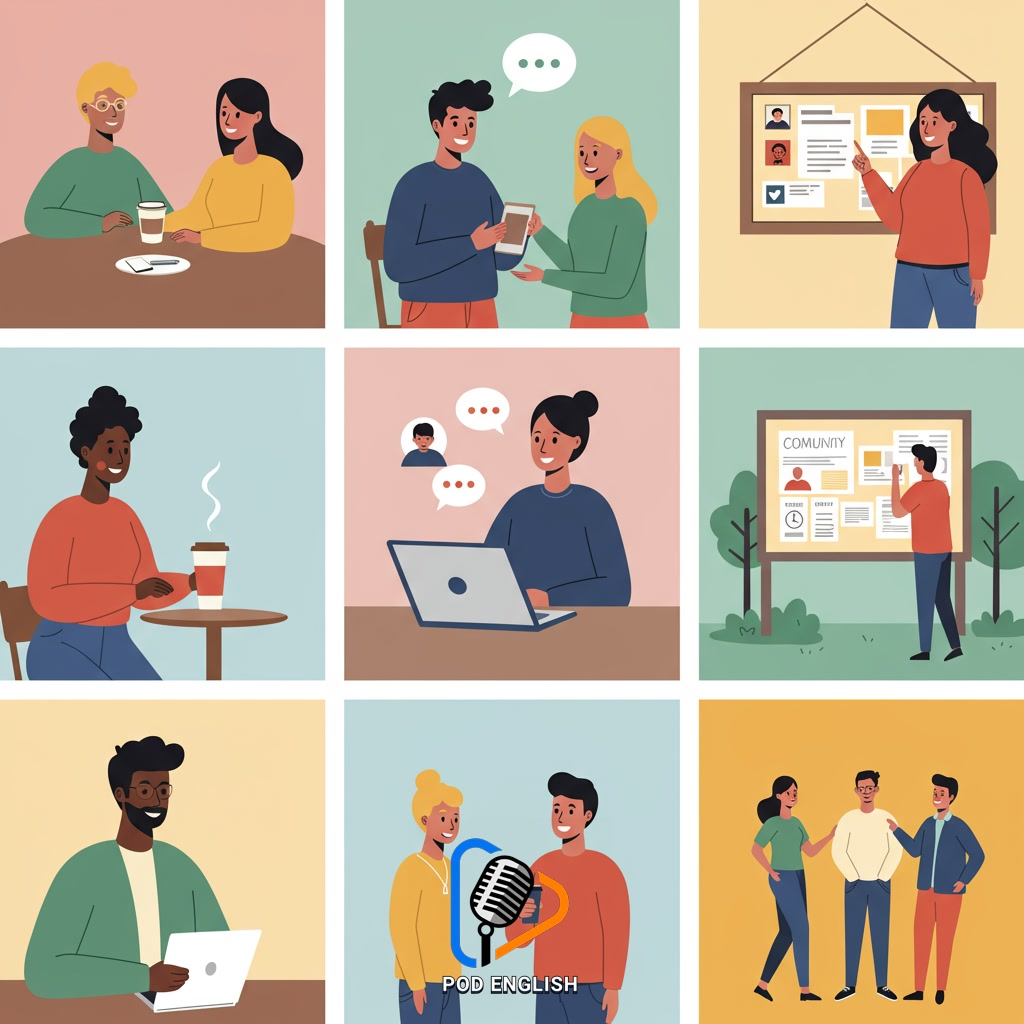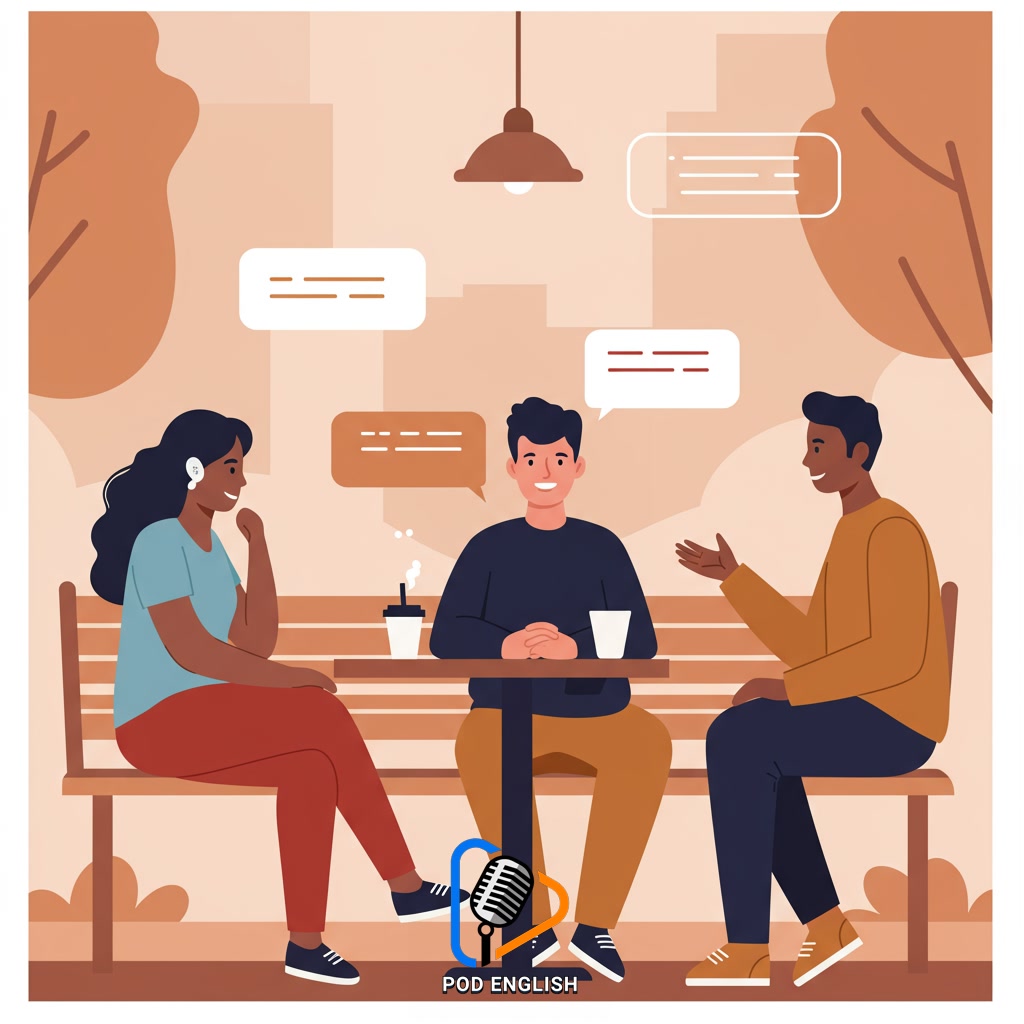Learn English
How to Stay Motivated to Study English Using Real-Life Conversations

This content provides strategies for staying motivated while studying English. A central method discussed is utilizing real-life conversations to enhance the learning process. Engaging in practical communication helps learners see tangible progress and keeps their interest high. This approach offers a dynamic way to maintain enthusiasm and improve English skills effectively.
Table of Contents
- Section 1: The Power of Real-Life English Conversations for Motivation
- Section 2: Finding Opportunities for Authentic Speaking Practice
- Section 3: Strategies to Maximize Learning During Conversations
- Section 4: Turning Conversations into Study Material
- Section 5: Overcoming Fear and Maintaining Consistency
- Section 6: Celebrating Progress and Staying Motivated Long-Term
Section 1: The Power of Real-Life English Conversations for Motivation
While traditional methods like textbooks and grammar exercises are fundamental, they can sometimes feel slow or disconnected from practical use, leading to decreased motivation. This is where real-life English conversations become incredibly powerful. Engaging in actual dialogue instantly connects theory to practice. When you successfully understand someone or express your thoughts clearly, you experience immediate, tangible progress. This direct feedback loop builds confidence and makes learning feel relevant and rewarding. Instead of just memorizing rules, you’re actively using the language to connect with others, which is inherently motivating. It transforms learning from a passive task into an active, dynamic, and often fun experience, proving that your study efforts are directly impacting your ability to communicate in the real world.

The Power of Real-Life English Conversations for Motivation
Section 2: Finding Opportunities for Authentic Speaking Practice
Building on the idea that real-life interaction is key, the next step is actively finding chances to practice speaking authentically. This means looking for opportunities to use English in natural conversations, not just in structured lessons. Consider joining language exchange groups, either online or in your local area, where you can talk with native speakers or other learners. Participate in online forums or communities focused on shared interests where English is used. Don’t shy away from interacting with English speakers you encounter, whether travelling, at work, or in social settings. Even simple acts like describing your day aloud or practicing potential conversations can build confidence. The goal is to be proactive and create situations where you need to communicate using the language you’re learning, making your study feel more relevant and rewarding.

Finding Opportunities for Authentic Speaking Practice
Section 3: Strategies to Maximize Learning During Conversations
Once you’ve found opportunities to engage in real-life English conversations, the key is to actively maximize your learning during these interactions. This involves being a truly active listener, paying close attention not just to the words spoken but also the intonation, rhythm, and body language. Don’t be afraid to ask clarifying questions if you don’t understand something or politely ask the speaker to repeat themselves. Observe how native speakers use vocabulary and grammar naturally in context. Try to integrate new words or phrases you hear into your own responses when appropriate. Finally, take a moment after the conversation to reflect on what you learned, perhaps noting down any new vocabulary or grammar points you encountered. This conscious effort turns simple interaction into a powerful learning experience.

Strategies to Maximize Learning During Conversations
Section 4: Turning Conversations into Study Material
Following a real-life English conversation, the learning doesn’t stop. This is where you actively transform the experience into study material. Immediately or soon after, take a few minutes to reflect. What new words or phrases did you hear? Were there any grammar points that confused you or that the other person used effectively? Did you struggle to express something? Jot these down in a notebook or a digital note. You can then look up the meanings, practice saying the difficult phrases, or research the grammar. Replaying key parts of the conversation in your mind and analyzing the language used turns a fleeting interaction into concrete learning points, making your study more practical and memorable. This process reinforces what you’ve learned and highlights areas for future focus, directly linking your study efforts to real-world communication.

Turning Conversations into Study Material
Section 5: Overcoming Fear and Maintaining Consistency
Stepping into real-life conversations can be daunting, and it’s completely normal to feel fear – fear of making mistakes, not understanding, or sounding awkward. Overcoming this initial hesitation is crucial for maintaining motivation. Remember that every conversation is a learning opportunity, not a test. The key is to embrace imperfections and view errors as stepping stones. Consistency is equally vital; short, regular practice sessions are far more effective than infrequent, long ones. Try to integrate English conversations into your routine, even in small ways. By taking small, consistent steps and reframing your mindset about mistakes, you build confidence over time. This growing confidence directly helps in reducing fear and keeps you engaged and motivated on your English learning journey.

Overcoming Fear and Maintaining Consistency
Section 6: Celebrating Progress and Staying Motivated Long-Term
Once you’ve taken the brave step into real-life conversations, it’s crucial to acknowledge and celebrate your progress, no matter how small it seems. Successfully navigating a simple exchange, understanding a joke, or even just getting your point across despite mistakes are significant achievements. These small victories provide tangible evidence that your hard work is paying off and reinforce the value of practicing English in authentic situations. Regularly reflecting on how far you’ve come, perhaps by recalling a difficult conversation you now handle with ease, helps build confidence and maintains motivation for the long-term journey of language learning. This positive reinforcement is key to staying enthusiastic and committed to using conversations as a primary tool for improvement.

Celebrating Progress and Staying Motivated Long-Term













